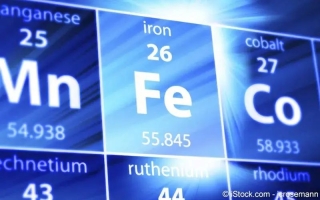Frozen shoulder risk factors
Frozen shoulder risk factors, Frozen Shoulder ist eine Erkrankung des Schultergelenks, die sich durch Schulter-Arm-Schmerzen und einer zunehmenden Schultersteife ausdrückt...
by Kaz Liste F
Frozen shoulder risk factors, Frozen Shoulder ist eine Erkrankung des Schultergelenks, die sich durch Schulter-Arm-Schmerzen und einer zunehmenden Schultersteife ausdrückt...
by Kaz Liste Fımmobility or reduced mobility. people who've had prolonged immobility or reduced mobility of the shoulder are at higher risk of developing frozen shoulder.
who is prone to frozen shoulder? people who have thyroid disease, diabetes, an autoimmune disease, and/or injury, stroke, heart attack, or prolonged .
risk factors for developing frozen shoulder include age, gender, inactivity, diabetes, and other diseases and conditions.
frozen shoulder most commonly affects people between the ages of 40 and 60, and occurs in women more often than men. ın addition, people with diabetes are at an .
11.05.2021 some known risk factors for its development are diabetes, dupuytren's syndrome, thyroid disease especially hypothyroidism, nephrolithiasis, .
conclusions: physicians should be aware that diabetes is a specific risk factor for idiopathic frozen shoulder in both males and females and thyroid disorders .
07.11. risk factors for adhesive capsulitis include female sex, age over 40 years, preceding trauma, hlab27 positivity and prolonged immobilization of .
19.01. stroke is a risk factor for frozen shoulder because movement of an arm and shoulderbe limited. why other diseases and conditions .
18.03.2021 certain medical conditions can increase your risk too. youalso be more likely to get frozen shoulder if you have diabetes. about 10% to 20% .
share on pinterest women aged over 40 years are more likely to develop frozen shoulder. common risk factors for frozen shoulder are: age: being over 40 years .
conclusions: physicians should be aware that diabetes is a specific risk factor for idiopathic frozen shoulder in both males and females and thyroid disorders .
frozen shoulder, often referred to as adhesive capsulitis ac, is characterized by initially painful and later progressively .
12.11.2020 risk factors include: diabetes; thyroid problems; changes in your hormones, such as during menopause; shoulder injury; shoulder surgery .
of those who have shoulder pain, aching or stiffness, there is a significant proportion who have recognised risk factors that predispose them to idiopathic .
17.09.2021 risk factors age 40 to 70 years diabetes mellitus prior history of adhesive capsulitis shoulder pain and immobilization previous shoulder .
[3, 11, 13] other associated risk factors include prolonged immobilization, myocardial infarction, trauma, cancer, and autoimmune disease. [3,14] the risk of .
frozen shoulder is a condition characterized by stiffness and pain in the shoulder joint. learn more about risk factors, diagnosis and treatment options .
04.08.2020 certain risks factors can increase frozen shoulder. risks are higher for: people 40 years of age and older. women. people with diabetes. people .
the condition can also occur after injury or surgery to the shoulder. risk factors include diabetes and thyroid disease. the underlying mechanism involves .
06.09.2021 the major symptoms of frozen shoulder are pain and loss of motion. other risk factors include previous injury to the shoulder area, .
risk factors for frozen shoulder adhesive capsulitis. ıt is thought that there are a .
diabetes, thyroid disorder, a history of shoulder trauma, and periods of shoulder immobilization have been found to be risk factors thatlead to frozen .
during this procedure, the surgeon will release the joint capsule that has stiffened while also removing any builtup scar tissue. risk factors. some factors .
11.11.2020 there are health related risk factors for frozen shoulder that include some of the following: diabetes cardiovascular disease parkinson's .
 P
P
Plötzlicher Herztod lässt sich durch schnelle Erste Hilfe mitunter vermeiden – und es gibt Warnzeichen...
 H
H
Hämochromatose, auch Eisenspeicherkrankheit genannt, ist eine Erbkrankheit, die sich häufig erst spät bemerkbar macht...